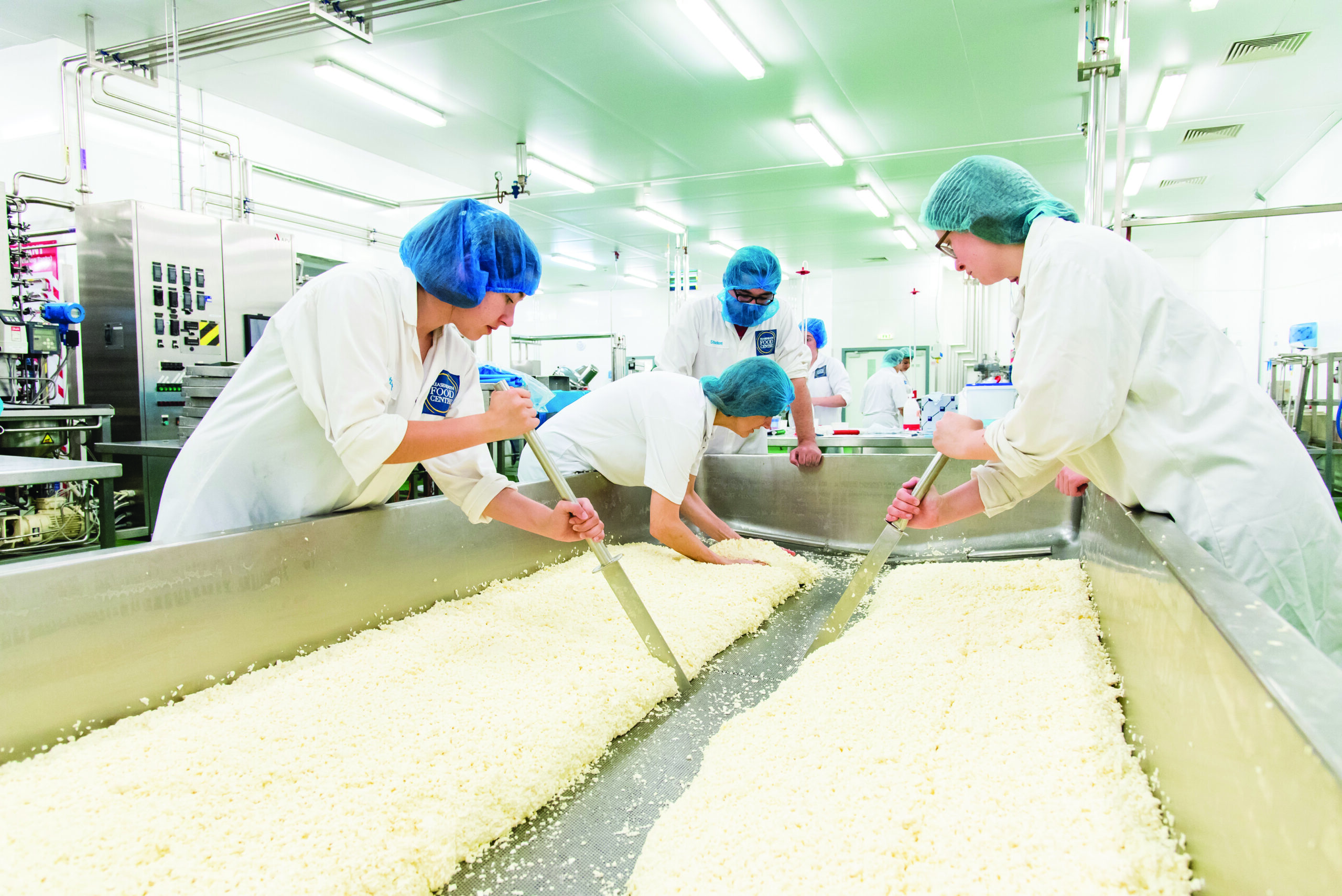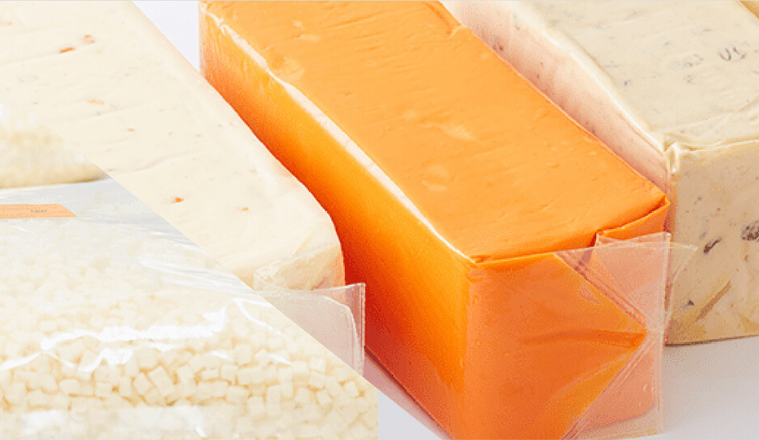A Comprehensive Take A Look At Cheese Manufacturing: Components, Techniques, and the Future of Craftsmen Cheeses
The elaborate process of cheese production is an interesting convergence of art and science, where premium milk, rennet, and specific microbial societies serve as fundamental components. Standard strategies, such as salting and aging, are matched by modern-day advancements that react to developing customer choices. As the sector progressively prioritizes sustainability and openness, the future of artisan cheeses guarantees to show both heritage and progression. Understanding the subtleties of these methods raises engaging inquiries regarding the instructions of cheese production and its effects for high quality and authenticity. What lies in advance in this evolving landscape?
Trick Components in Cheese Manufacturing
A variety of necessary active ingredients play a critical function in cheese production, each adding to the end product's taste, structure, and personality. The primary ingredient in cheese is milk, which can originate from numerous resources, including cows, goats, and lamb - cheese makers melbourne. The kind of milk made use of significantly influences the cheese's preference and uniformity; as an example, cow's milk commonly generates creamier cheeses, while goat's milk typically produces zesty selections
Another important active ingredient is rennet, an enzyme used to curdle the milk, dividing it into curds and whey. The source of rennet can be animal, vegetable, or microbial, each giving unique attributes to celebrity. Cultures, containing particular stress of germs, are likewise important to the cheese-making procedure. They ferment lactose right into lactic acid, assisting in taste development and texture.
Salt not just boosts the taste yet additionally works as a chemical, preventing the growth of unfavorable germs. In addition, various flavor agents, such as natural herbs, spices, or even smoked wood, can be included in develop one-of-a-kind artisanal cheeses. With each other, these components develop the foundation of cheese production, setting the stage for diverse and rich cheese varieties.
Traditional Cheese-Making Techniques
Utilizing traditional cheese-making methods, artisans around the globe preserve classic methods that have been given via generations. These methods frequently stress the use of top quality, in your area sourced milk, which is central to the special flavors and appearances of artisanal cheeses. The procedure typically begins with the mindful home heating of milk, complied with by the addition of societies and rennet to promote coagulation.
When the curds develop, they are reduced, enabling whey to drain pipes, a crucial action that affects moisture material and appearance. The curds are then delicately stirred and cooked to achieve the preferred firmness. Afterward, they are drained pipes and pressed into mold and mildews. Salting is an essential aspect of this procedure, boosting taste while additionally acting as a preservative.
Aging, or affinage, is an additional critical element, throughout which cheeses create their characteristic scents and preferences. Artisans may use details aging atmospheres, making use of moisture and temperature level controls to improve the cheese's profile. The dedication to go to this web-site these standard approaches not just supports regional economies but also contributes to the abundant variety of cheese varieties located globally, celebrating cultural heritage and artisanal craftsmanship.
Modern Advancements in Cheese Production
Exactly how have technical innovations transformed cheese production in the last few years? The integration of modern innovation has actually reinvented both the effectiveness and quality of cheese manufacturing. Automation in different stages of the procedure-- from curd development to product packaging-- has actually boosted uniformity while lowering labor prices. For example, automated curd cutting and stirring systems enable for specific control over structure and moisture degrees, essential variables affecting the end product.
In addition, innovations in microbiology have enabled cheesemakers to select particular bacterial societies and enzymes, maximizing flavor profiles and improving shelf life. Using sensing unit modern technology for keeping an eye on fermentation conditions has actually additionally ended up being prevalent, enabling for real-time modifications to preserve ideal settings for cheese aging.

These innovations not just boost the high quality and sustainability of cheese production yet additionally equip artisan manufacturers to preserve conventional flavors while welcoming contemporary effectiveness. As technology remains to advance, the future of cheese production looks promising, mixing custom with development.
The Role of Terroir in Cheese
In the world of cheese production, terroir plays a critical role in specifying the unique qualities of various cheeses. Terroir, a French term typically connected with wine, encompasses the environmental elements that influence farming items, consisting of soil composition, environment, and neighborhood vegetation and fauna. In cheese-making, the unique characteristics of the area where the milk why not try here is sourced can impart specific tastes and structures to the end product.
For example, the grazing conditions of dairy pets considerably impact the milk's composition, influenced by the types of lawns and herbs readily available in this post a particular location. This differs not just between nations but likewise in between regions within the same nation. Furthermore, the microbial communities existing in the atmosphere contribute to the fermentation processes, resulting in diverse accounts in flavor and fragrance.
Cheeses such as Roquefort, Parmigiano-Reggiano, and Cheddar exhibit exactly how terroir can shape their identities, making them unique and frequently shielded by geographical indicators. As producers significantly acknowledge the relevance of terroir, there is a growing focus on sourcing regional ingredients and preserving typical methods, making certain that each cheese absolutely shows its origin.

Future Fads in Craftsmen Cheeses
A significant shift is occurring in the craftsmen cheese industry, driven by evolving customer preferences and technical improvements. Increasingly, customers are inclining unique, premium items that highlight both sustainability and regional sourcing - cheese store melbourne. This fad is prompting artisan cheesemakers to innovate, focusing on small-batch production and the use of traditional techniques while incorporating modern-day technology to enhance top quality and security
Furthermore, there is a growing rate of interest in plant-based and alternate dairy items, pressing standard cheesemakers to check out brand-new methods, such as cashew or almond-based cheeses. This change not only satisfies nutritional constraints yet also straightens with ecological issues regarding pet farming.
Furthermore, transparency in sourcing and manufacturing processes is ending up being critical. Customers are much more enlightened and demand traceability, motivating manufacturers to adopt more clear labeling methods and participate in narration that highlights their methods and values.
Final Thought
In final thought, the intricate process of cheese manufacturing blends traditional techniques with contemporary innovations, causing a varied array of tastes and textures. The focus on premium components and the influence of terroir underscore the virtuosity included in cheese manufacturing. As the market progresses, a focus on sustainability and openness will likely shape the future of artisan cheeses, satisfying a significantly critical consumer base that values authenticity and craftsmanship in dairy items.
 Bradley Pierce Then & Now!
Bradley Pierce Then & Now! Dylan and Cole Sprouse Then & Now!
Dylan and Cole Sprouse Then & Now! Richard "Little Hercules" Sandrak Then & Now!
Richard "Little Hercules" Sandrak Then & Now! Destiny’s Child Then & Now!
Destiny’s Child Then & Now! Richard Thomas Then & Now!
Richard Thomas Then & Now!